Turkish students fear assault on secular education
- Published
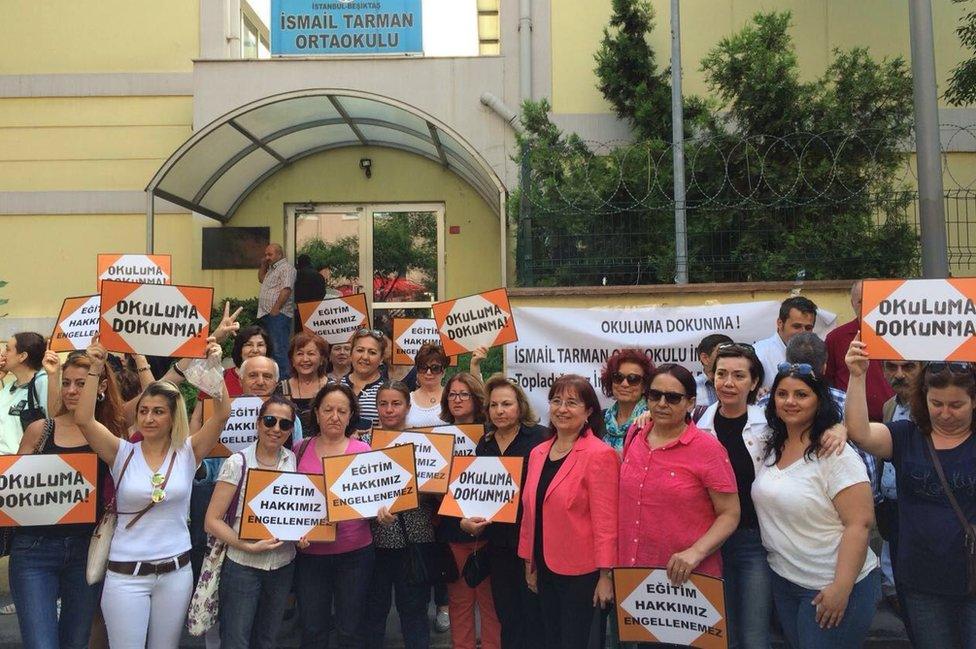
Parents of students at the Ismail Tarman school have been protesting for more than two weeks
When a group of high school students in Istanbul turned their backs on their head teacher as he addressed their graduation ceremony, it was the start of a wave of protests that has spread to hundreds of schools across Turkey.
The students at the prestigious Istanbul High School had accused their principal of being too obedient to Turkish officials and not speaking up for their rights.
As more and more students joined the protest, President Recep Tayyip Erdogan warned that Turkey did not need a repeat of the Gezi protests that shook the country in 2013.
"We see that some forces who have not learnt from the past are trying to provoke the universities, the high schools," he said.
The students' demands were similar, as were their complaints.
"They are restricting our activities," complained one graduate of Istanbul High School.
"They say that the country is going through troubling times so we cannot hold concerts at school. But then the government ran a festival on the anniversary of the conquest of Istanbul. So why restrict our activities? Is there a double standard?"
More than 370 Turkish schools have since signed an overtly political declaration by the Turkey High School Students Union TLB, refusing to allow what they see as the spread of fundamentalism in high schools.
"They do not allow girls' volleyball teams at the schools because girls are supposed to wear shorts," read the statement.
TLB leader Bora Celik complained that there was a movement against secular and mixed education.
"They do not permit literature or poetry societies. There are prayer rooms in schools where there are no laboratories. These protests are the result of such oppression," he said.
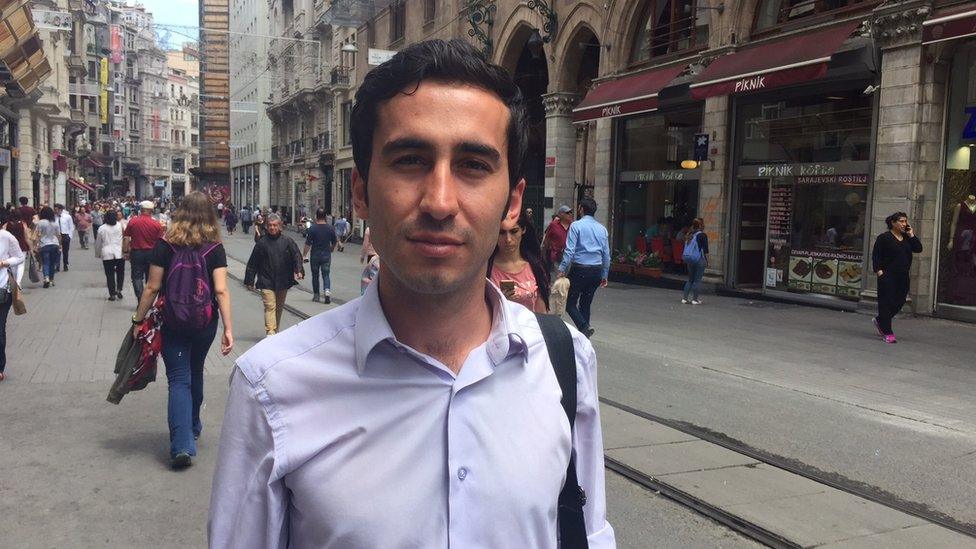
Union leader Bora Celik has complained about moves against secular and mixed education
The leader of the main opposition party has backed the students and there are fears that education has become a political football in Turkey's increasingly polarised society.
"I would hate to see the tension rise," says Batuhan Aydagul, director of the Education Reform Initiative, an independent think tank.
And the school protests do not stop there.
'Pious schools'
In an upper middle-class district in Istanbul, parents of students studying in the Ismail Tarman Secondary School have been staging demonstrations for more than a fortnight.
They object to plans to convert their school into an "Imam-Hatip" - a religious school where girls and boys are segregated and taught Sunni Islamic religion and religious practices outside the national curriculum.
"I came running to the school as soon as I heard of these plans," says Bengu Bozkurt. "If I wanted my son to have a religious education, then I would have sent him to an Imam-Hatip school already. But I believe in secular education."
The Imam-Hatip row has engulfed other schools too since 2012, when the government introduced a contentious 12-year compulsory education system, known in Turkey as 4+4+4.
With four-year phases each for primary, secondary and high school levels, this new system had paved the way for religious schools.
After Turkey's so-called post-modern coup in 1997, such religious schools were largely closed down.
At the opening of an Imam-Hatip school in September last year, President Erdogan compared the closures to the severing of an artery. But, he emphasised, "we were patient".
A graduate of an Imam-Hatip school himself, the president has long spoken of his plans to raise a "pious generation" and to change the national curriculum.
And since his Islamist-rooted AK Party came to power in 2002, there has been a dramatic reversal of fortunes for Imam-Hatip schools, whose pupil numbers have increased by 90% to more than 1.2 million.
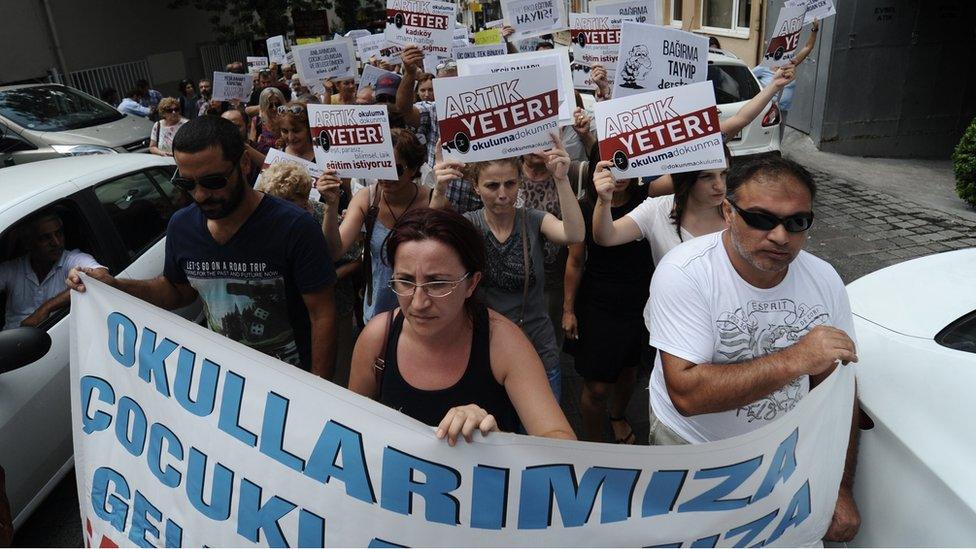
The controversy over Imam-Hatip schools has affected Turkish education for four years
For Ecevit Oksuz, head of Turkey's Imam-Hatip Graduates Association, says it is simply a question of meeting a high demand for places.
"I would never agree to someone being forced to send their sons or daughters to an Imam-Hatip. But as long as there are demands, there also need to be sacrifices," he says.
But there are others who see an unstated aim to make Turkish education more Islamic and conservative.
"Imam-Hatip schools can of course be established. But there is pressure on all schools to convert. Students and parents are saying enough is enough!" says Kamuran Karaca, leader of Egitim-Sen, one of Turkey's biggest teachers' unions.
He fears that tensions surrounding education could become worse.
"If people say that's enough, and no-one listens to them, then everyone will try to establish their own model of education and society. I hope it won't come to that."
- Published18 hours ago
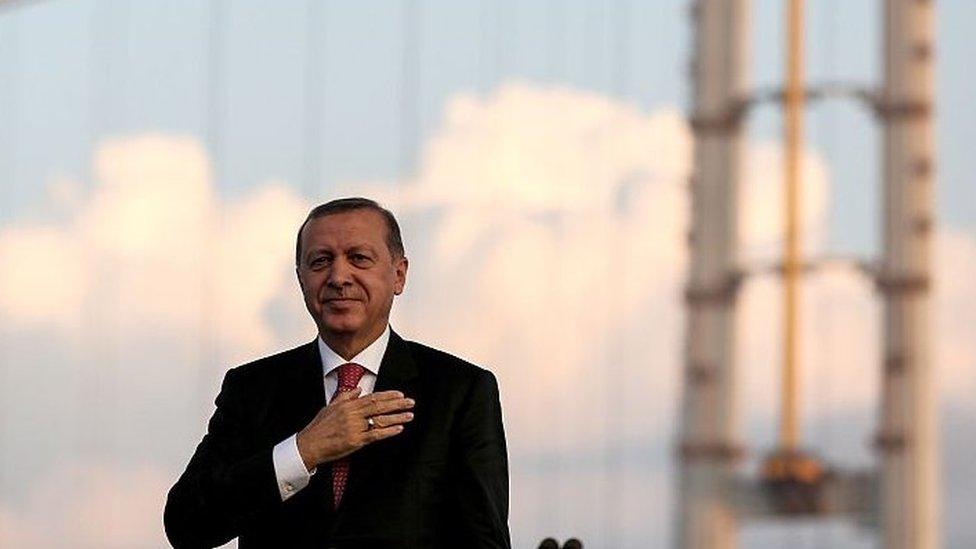
- Published5 March 2016
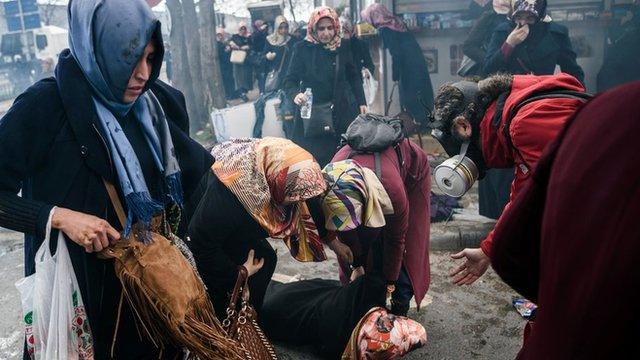
- Published14 December 2022